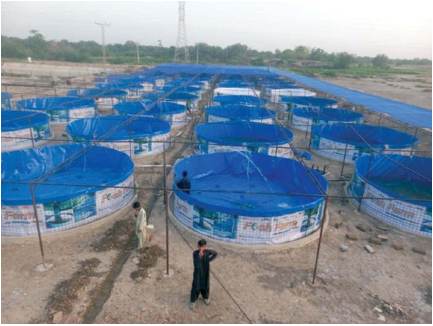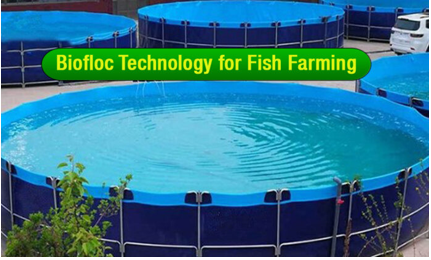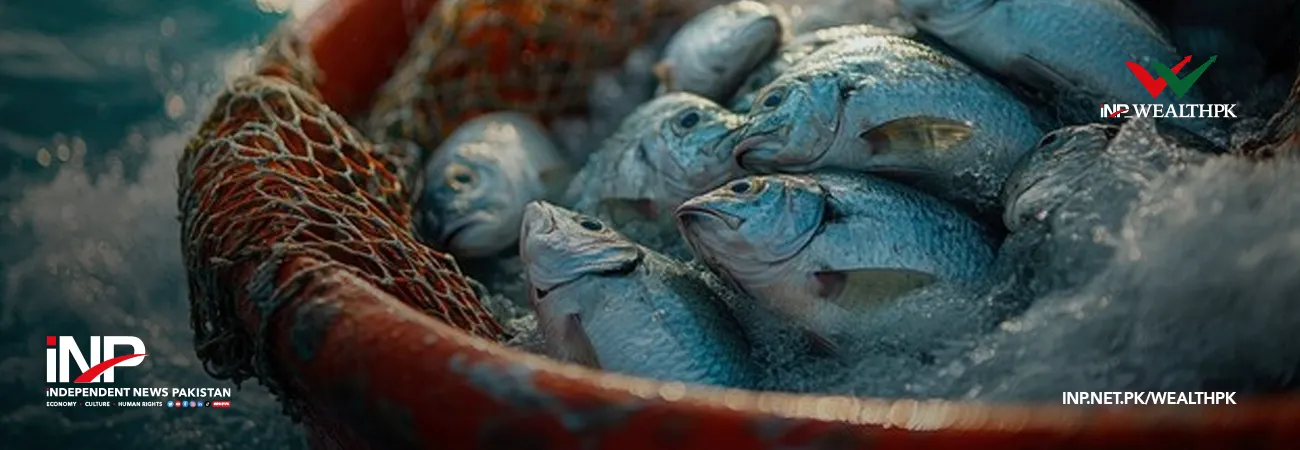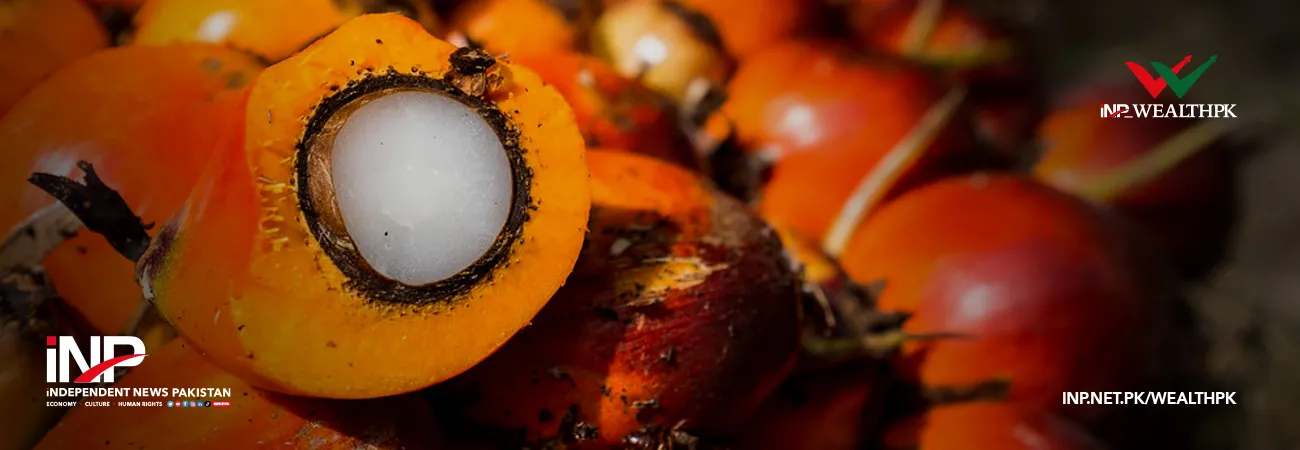آئی این پی ویلتھ پی کے
Azeem Ahmed Khan
As Pakistan struggles with water scarcity and the rising costs of traditional aquaculture, biofloc fish farming is emerging as a promising solution to reshaping the country’s fisheries landscape, reports WealthPK.

“This innovative technology can bring a revolution in Pakistan and take its fisheries sector to new heights,” said Dr. Urfa Bin Tahir, Assistant Professor at the Department of Parasitology, Faisalabad Agriculture University. Dr. Urfa explained that biofloc is a modern fish farming technique that uses beneficial bacteria to convert fish waste into nutrient-rich flocs, which in turn serves as food for fish.
“This not only reduces feed costs but also minimizes the need for frequent water changes, conserving water and protecting the environment,” he said. Thanks to its efficiency and sustainability, biofloc systems are gaining popularity in Pakistan, especially in areas where the land is limited and water resources are scarce.
“Farmers using biofloc can achieve high yields in relatively compact tanks with significantly lower resource input compared to traditional pond systems,” he added. Biofloc technology is part of a growing global trend in sustainable aquaculture. In Pakistan, tank sizes typically range from 1,000 to 5,000 litres, depending on the fish species and the scale of the operation.
A 1,000-litre tank can cost between Rs30,000 to Rs50,000, making it accessible even for small-scale farmers, he added. Dr. Urfa emphasized that biofloc is suitable only for omnivorous fish species – those consuming both plant and animal matter. Neither strictly carnivorous nor herbivorous fish thrive in this system, he said.
Currently, Tilapia and Pangasius are the most commonly bred species in Pakistan’s biofloc farms due to their adaptability and high market demand.

“One of the biggest advantages of this system is that a single biofloc tank can produce the same quantity of fish as a six-acre traditional farm,” he pointed out. “This represents a fundamental shift in the way small farmers can approach aquaculture - with less land, less water, and more output.”
To maintain water quality and ensure fish health, high-density polyethylene liners are used inside tanks to prevent chemical contamination from concrete surfaces, he said. Oxygen is supplied through aeration systems or paddlewheel aerators, which are vital for both bacterial activity and fish survival, he explained.
While the initial investment for a complete biofloc setup ranges from Rs100,000 to Rs300,000, Dr. Urfa highlighted that long-term savings are substantial. The bacterial flocs reduce dependency on commercial fish feed – one of the biggest expenses in aquaculture – and promote faster fish growth.
Emphasizing environmental benefits, he said, “The system is eco-friendly because the waste is not discharged into the natural water bodies. Instead, it is broken down by three types of beneficial bacteria into harmless compounds or consumed as food. This means cleaner operations and reduced strain on ecosystems.”
As Pakistan develops hatcheries for species like Sea Bass and Barramundi, currently not widely available in the country, the potential for expanding biofloc farming will grow even further. These additions could significantly increase profitability for fish farmers, he noted.
Despite the potential, Pakistan’s fisheries sector has long remained underdeveloped due to outdated methods and insufficient infrastructure. However, Dr. Urfa believes biofloc offers an opportunity to revitalize the industry, bringing it in line with the global sustainability trends.
He has called on the government to play a proactive role by offering training, subsidies, and awareness programs to encourage widespread adoption.
“If widely adopted, biofloc farming could be a key driver of food security, rural development, and environmental resilience,” he added. With more farmers turning to this sustainable method, biofloc has the potential to transform Pakistan’s fisheries into a thriving and eco-friendly sector, he observed.
Credit: INP-WealthPk












